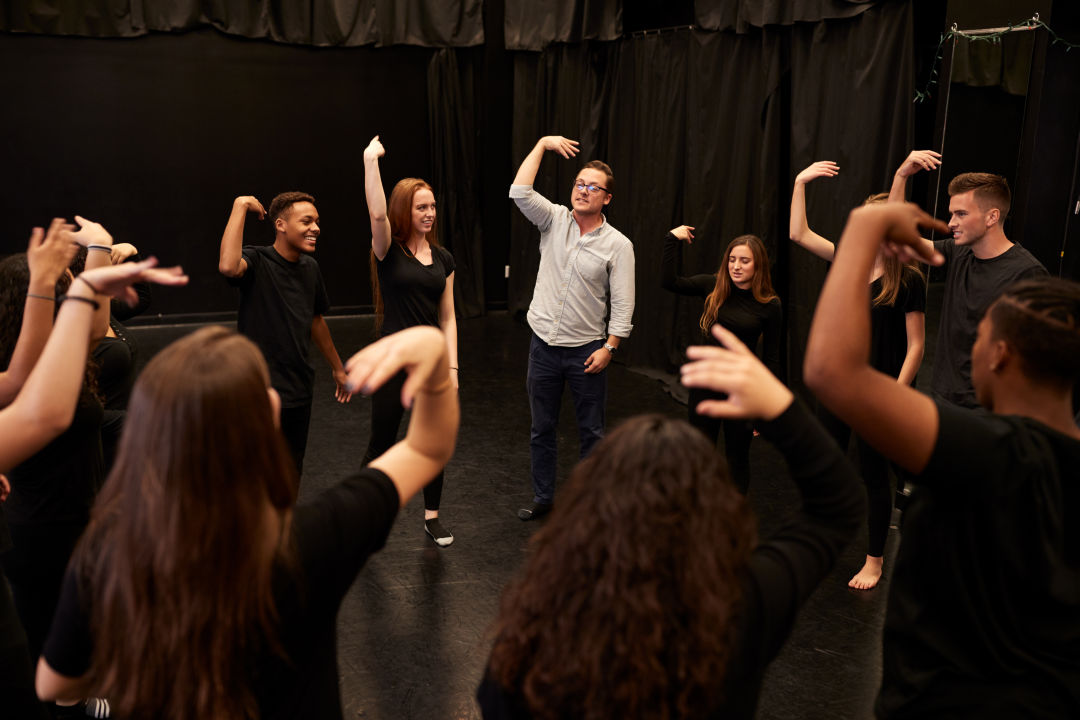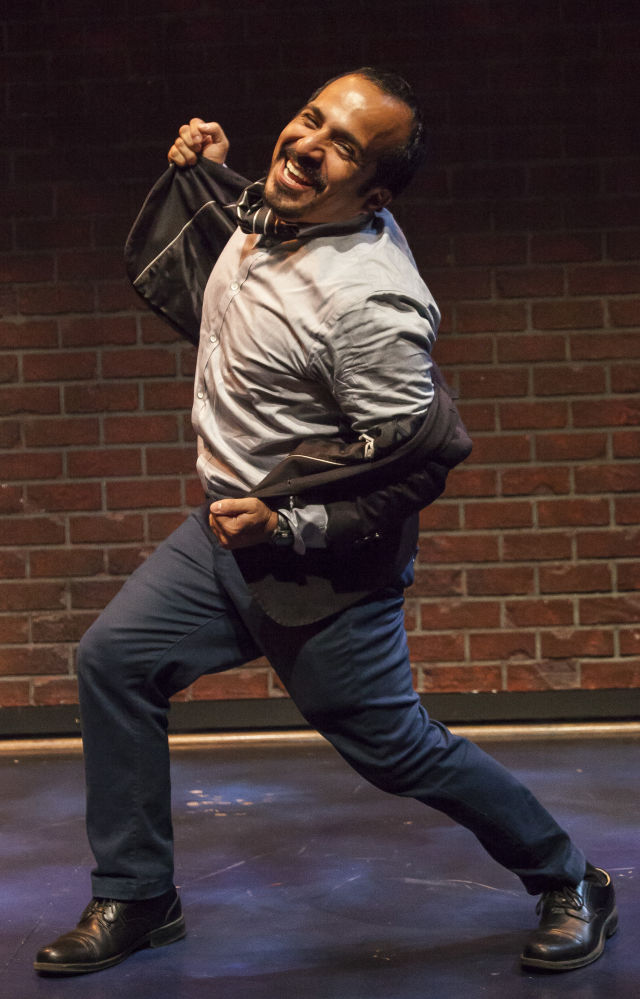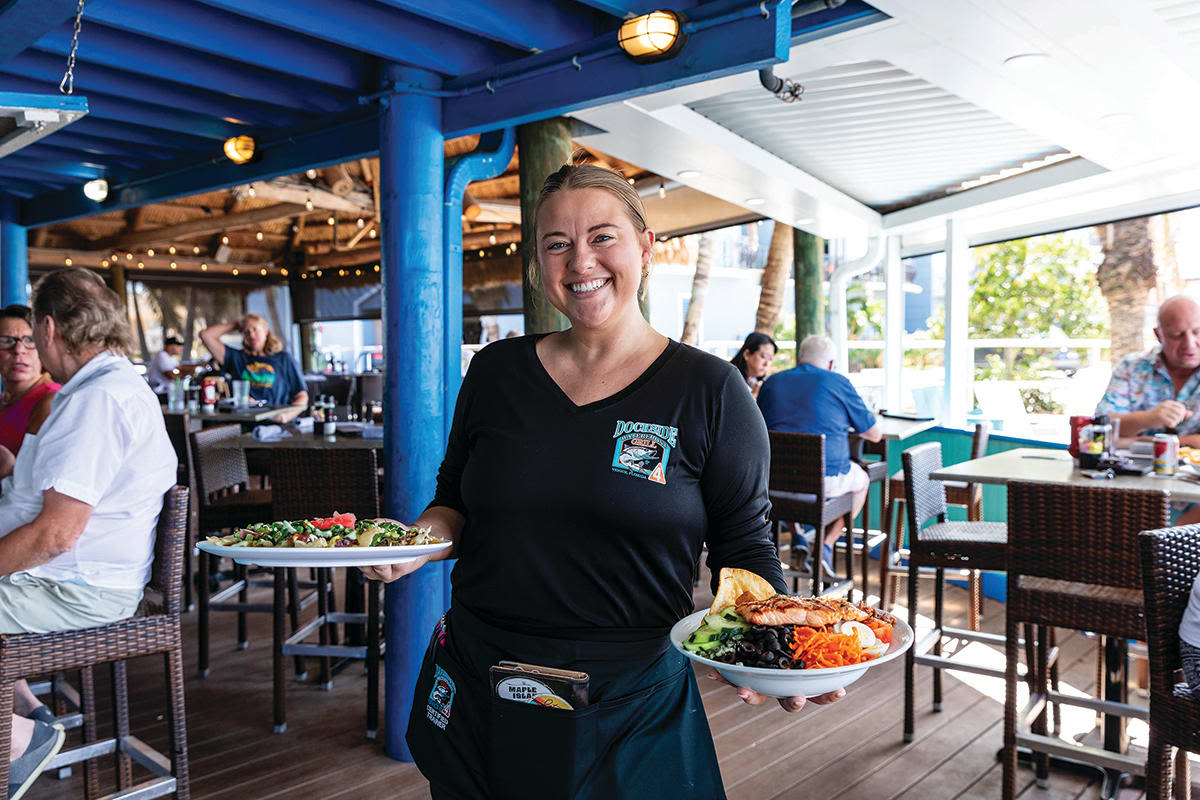Can Improv Classes Sharpen Your Mind?

Ah, the improvisation class. A place where timid, hopeful actors go to become more outspoken, bold and confident in the art of playing pretend. Class participants feed off each other's energy to create a scene on the spot, straight from their imagination.
Turns out, this skill can be helpful for just about anyone's brain.
Studies detailed in Psychology Today have found that participants in a six-week improvisation course felt more creative, had boosted self-esteem and built uncertainty tolerance, or the ability to better navigate life's unknowns.
Florida Studio Theatre's director of improvisation, Will Luera, agrees with the aforementioned benefits. He's created a program through the theater where he provides improvisation classes in nursing homes, retirement facilities and to patients living with Alzheimer's disease and dementia. Luera has found that improvisation improves students' memory.

Florida Studio Theatre's director of improvisation Will Luera.
Image: Courtesy Photo
"The classes I teach surround the idea of cognitive fitness and building neural pathways in the brain," says Luera. "I help students recall past events. They share an overview of ideas, thoughts and memories, and I give them the tools needed to articulate them further."
Luera uses improvisation exercises that implement real-life themes to help jog students' memories. Recently, he used the theme of Thanksgiving, asking students to share memories of past Thanksgiving Days. This helps Luera determine the various states of cognitive function each possesses. After they share, he dives deeper, asking what kinds of foods you'd need to stock the pantry with or what kinds of guests would attend.
"I create the space and opportunity for them to paint a picture of the memory in their mind," says Luera. "Even if I'm with a group that's not cognitively high functioning, I tend to get a nod, smile or eye contact when something clicks."
Other themes Luera has explored include visiting the beach, getting ready for a trip and other forms of list making.

Workplace training improv session.
Image: Courtesy Photo
Beyond memory, improvisation has helped Luera's students gain confidence and courage, two concepts learned in his seven-pillar approach. On level one of his curriculum, he focuses on "making people feel comfortable and confident with what's already in their heads."
"Your real life experience and knowledge is what you bring to the table in the improvisation studio or ensemble," say Luera. "You can share this with the group without judgment and without judging yourself."
Emotional intelligence, or the ability to become more empathetic towards others, is another quality to be gained from improvising. By simply listening to your fellow improvisers and picking up on their body language, you are building emotional intelligence.
"This can help build healthier relationships with one another, outside of class," Luera adds.
All ages can apply the art of playing pretend to their lives. Luera teaches improvisation and conflict-resolution classes to children at Booker Middle School. In addition, he teaches classes Monday afternoons for the older population, and comedy-based classes Monday-Thursday. Drop-in classes are offered every Saturday from 3 to 5 p.m.
Florida Studio Theatre's School For Adults will begin session two on Monday, Nov. 29. Check the theatre's website for schedule details.
"With all the trauma we've gone through the past two years, I think improvisation is really conducive to becoming more agile, quick-thinking and empathetic in a world that changes so quickly," says Luera.
For more information about Florida Studio Theatre, click here or call (941) 366-9000. Florida Studio Theatre is located at 1241 N. Palm Ave., Sarasota.



